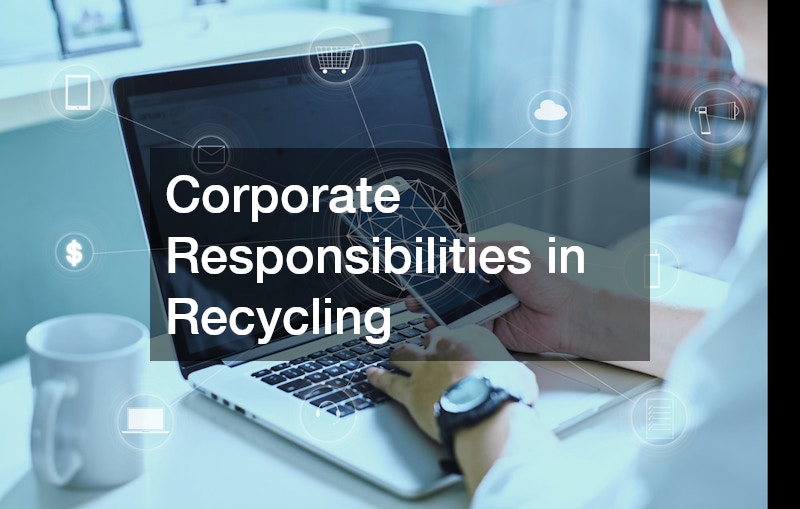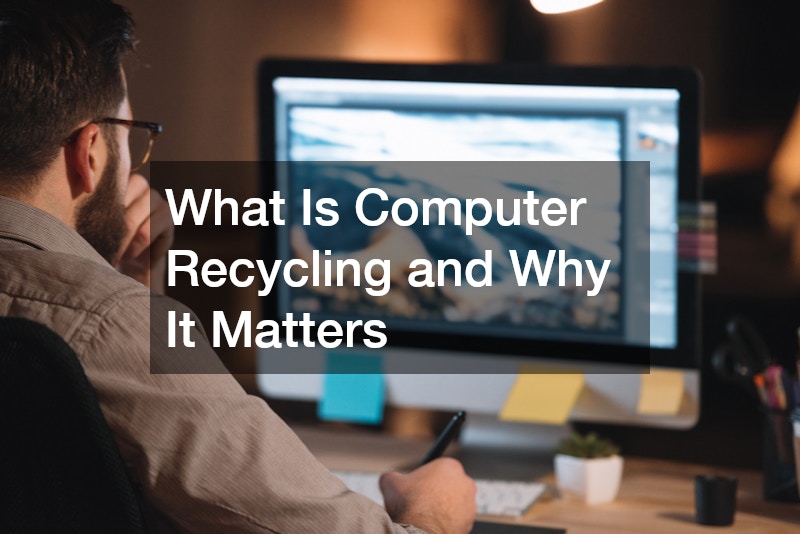Computer recycling refers to the process of collecting, dismantling, and processing old computers and electronic devices. It plays a significant role in environmental care and technological sustainability by reducing electronic waste (e-waste) and conserving resources. With the increasing accumulation of outdated technology, understanding and participating in computer recycling is more critical than ever for the health of our planet.
Key Materials Recovered
Computer recycling processes salvage several valuable and scarce materials, pivotal for technological production. Among these, precious metals like gold, silver, and platinum are extracted from circuit boards and other internal components. Recovering these materials reduces the dependence on mining and saves billions of dollars in material acquisition costs.
Apart from metals, plastics are also a significant category of materials recovered, contributing to reduced demands on refining and producing new plastic. This plastic can then be reused in manufacturing new electronic casings or other industrial products. Efficient recycling of these polymers is vital for mitigating plastic waste issues globally.
Moreover, rare earth elements, which are crucial in manufacturing advanced technological products, are also reclaimed during computer recycling. These elements, used in things like display screens and batteries, are essential for modern electronics. By recovering them, we can ensure the continued availability of these limited resources for future technologies.
Pollution Prevention
Computer recycling is a key measure in the prevention of pollution, particularly in reducing the levels of harmful chemicals and metals released into the environment. Many electronic components contain substances that, if not managed properly, can degrade the quality of air, water, and soil. Through recycling, these substances are safely extracted and treated accordingly.
By ensuring that less e-waste reaches landfills, recycling minimizes the pollution associated with the decomposition of electronics. For example, the release of dioxins from burning electronics is substantially mitigated through recycling practices. This not only improves air quality but also reduces the potential health risks associated with such pollutants.
Furthermore, recycling initiatives help in instilling responsible waste management practices that prevent illegal dumping and improper disposal. By participating in organized recycling programs, individuals and businesses can contribute to a cleaner environment. Pollution prevention thus becomes a collective responsibility where recycling plays a foundational role.
Effective Recycling Practices for Individuals
Individuals can adopt several effective recycling practices that start with understanding the life cycle of electronic products. Initiatives such as donating working computers to those in need or participating in local e-waste recycling programs greatly contribute to reducing waste. Proper disposal ensures that hazardous materials are managed safely and valuable components are recovered.
Consumer education is vital in promoting recycling-friendly habits such as choosing products with longer lifespans and supporting brands that have strong sustainability policies. By purchasing products designed for easy recycling or refurbishing, individuals play a part in closing the loop of electronic waste. Such conscious consumer choices support a sustainable economy.
Additionally, individuals can engage in community-led drives and awareness campaigns to promote recycling. Staying informed about recycling practices and local disposal guidelines helps individuals contribute meaningfully. By taking these steps, individuals can significantly impact the effectiveness of recycling efforts in their communities.
Corporate Responsibilities in Recycling
Corporations hold a fundamental role in addressing the e-waste crisis through robust recycling policies and practices. Companies can lead by example by integrating recycling into their operations, ensuring that their electronic waste is processed responsibly. Implementing take-back programs and providing incentives for recycling not only diminishes e-waste but also builds corporate responsibility and public trust.
Furthermore, businesses can innovate in product design, making devices easier to disassemble and recycle. This can reduce costs over the product’s lifecycle and encourage more participation in recycling programs. By investing in research and development for sustainable materials, businesses contribute to a more efficient and eco-friendly manufacturing process.
Partnerships with recycling companies enable corporations to ensure their waste is ethically and safely recycled. Establishing these collaborations not only supports the development of the recycling industry but also promotes the advancement of new recycling technologies. In this way, corporations can greatly influence the reduction of global e-waste and foster sustainable practices.
Policy and Legislation
Government policy plays a vital role in the enhancement of recycling efforts. Policies such as mandatory recycling targets and extended producer responsibility laws ensure manufacturers take responsibility for their products throughout their lifecycle. These regulations drive innovation in recycling processes and encourage the development of eco-friendly products.
Legislation also supports the establishment of standardized recycling processes and penalties for illegal disposal, solidifying the structure for efficient e-waste management. By facilitating public awareness campaigns and educational programs, governments can help communities understand the importance of recycling. Such initiatives ensure broader engagement and compliance with recycling best practices.
Moreover, international collaborations and agreements can enhance recycling efforts globally. By promoting shared standards and practices among nations, the scope and efficacy of recycling programs can be improved. Collaborative efforts are vital in addressing the challenges posed by e-waste, fostering a global culture of sustainability and responsibility.
In summary, computer recycling holds immense significance for environmental health, resource conservation, and technological sustainability. By engaging individuals, corporations, and governments in coordinated recycling efforts, the risks posed by e-waste can be substantially mitigated. Continuous advocacy and participation in recycling practices ensure a cleaner planet and a sustainable future for generations to come.
.

